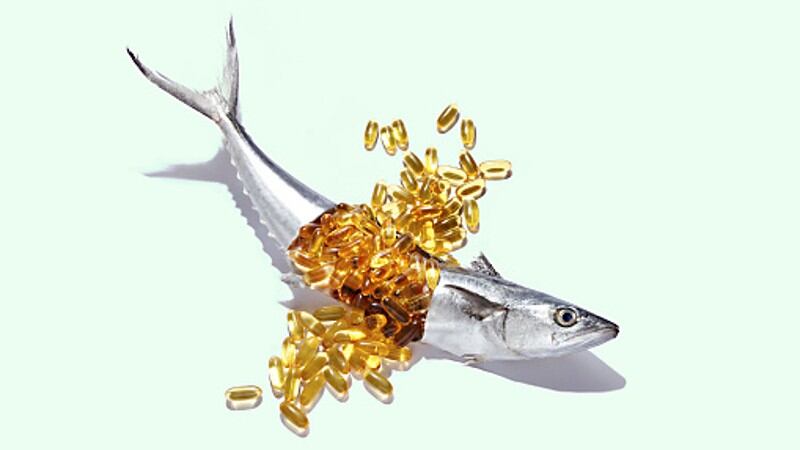Fine particulate matter (PM2.5) is a major air pollutant threatening human health, but this latest study suggests that fish oil supplementation could deliver benefits specifically by modulating fatty acid metabolism.
Researchers say this provides a plausible biological mechanistic insight into how supplementation works.
The ‘Mechanistic insights into the health benefits of fish-oil supplementation against fine particulate matter air pollution: a randomized controlled trial’ was a double-blinded study conducted among healthy college students in Shanghai, China, from September 2017 to January 2018.
Seventy students residing in the Fenglin campus of Fudan University were recruited, with 65 of them completing the trial. Among them, 34 and 31 participants were randomly assigned to take two capsules of marine-derived fish oil or sunflower seed oil per day respectively, throughout the study period.
Each capsule of fish oil was 1.25g and contained 36% eicosapentaenoic acid (EPA) and 24% docosahexaenoic acid (DHA).
In this study, the potential biological mechanisms of fish-oil supplementation against PM2.5-induced effects on biomarkers of systemic inflammation, coagulation, endothelial dysfunction, and oxidative stress were examined.
Alleviating the effects of PM2.5 exposure
In the final two months of the trial, the participants underwent four rounds of health measurements to assess the metabolic changes associated with ambient PM2.5 concentration.
The findings revealed that the impact of PM2.5 exposure were stronger in the placebo group.
A total of 3,833 metabolites were found to be significantly associated with PM2.5 in the sunflower seed oil group and 1,757 in the fish oil group.
The metabolites identified included arachidonic acid derivatives, omega-3 fatty acids, omega-6 fatty acids, and omega-9 fatty acids.
“We found that ambient PM2.5 concentration was associated with several metabolites related to polyunsaturated fatty acid metabolism and inflammation in the sunflower seed oil group rather than in the fish oil group. We also found fish-oil supplementation could mitigate or even inverse the effects of PM2.5 exposure on pro-inflammatory metabolites,” said the authors.
Alternative eicosanoids (signalling molecules) derived from EPA or DHA are proven to produce less pro-inflammatory actions than eicosanoids derived from arachidonic acid. Some of the former even have anti-inflammatory functions.
The main components of fish oil, EPA and DHA, could prevent the formation of arachidonic acid-derived eicosanoids via substrate competition, and therefore shift eicosanoid production towards a less inflammatory profile.
According to the findings, each 10-µg/m3 increment in ambient PM2.5 concentration resulted in changes of -5.24% in DHA in the placebo group and -0.06% in the fish oil group.
The health assessment also showed that participants in the fish oil group had visibly higher levels of EPA and DHA, compared to their baseline levels and those in the placebo group.
It should be noted that the study has a few key limitations, including the small sample size and possible errors in exposure measurements. Also, the effects of dietary nutrient intake and the potential effects of sunflower seed oil supplementation on the metabolome could not be fully excluded.
A cause for concern in China
Past studies have closely linked PM2.5 pollution to adverse health outcomes. The Global Burden of Disease project estimated that ambient PM2.5 pollution accounted for 4.14 million deaths worldwide in 2019.
Although the PM2.5 levels in China have decreased due to a series of ‘air-cleaning’ actions, they are still above the guidelines by the World Health Organization.
While air purifiers and particulate-filtering respirators could reduce the damage caused by PM2.5 exposure, these measures are not as effective in settings like the outdoors and in rural areas. In such cases, dietary intervention may offer a simple and effective approach to protect individual health, the authors said.
Source: Environmental Health
https://doi.org/10.1186/s12940-022-00908-1
“Mechanistic insights into the health benefits of fish-oil supplementation against fine particulate matter air pollution: a randomized controlled trial”
Authors: Lu Zhou, et al





